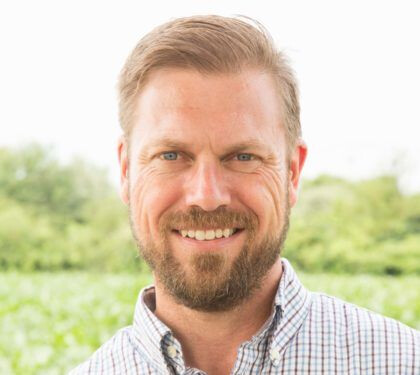AFT Releases New Soil Health Resources to Help New York Farmers Learn from Peers
At American Farmland Trust, we know that farmers often learn best from other farmers, sharing lessons from their own operations, and tackling challenges as they arise. Launched in 2018, the Genesee River Demonstration Farms Network, in partnership with AFT, USDA’s Natural Resources Conservation Service, the Great Lakes Restoration Initiative, and the New York Farm Viability Institute, showcases the impacts of practical and innovative New York soil health practices on real working farms. While focused on the Genesee River Watershed, these resources are applicable to farming operations across the state and beyond.
AFT is highlighting two new resources from the Genesee River Demonstration Farms Network and the upcoming Western New York Soil Health Alliance workshop and annual meeting on Dec.15, held in person in Batavia, New York, and virtually accessible. Learn more and register at: bit.ly/WNYSHA2022.
Table Rock Farm Case Study
A new case study features Table Rock Farm, a 1,150-cow dairy spanning 1,800 acres in Wyoming County, owned and operated by Meghan Hauser alongside crop specialist, Jeffrey Jordan, and a dedicated team of 35 employees. Table Rock Farm produces their own feed for their cows, using a six-year crop rotation of corn silage and alfalfa hay. Table Rock was the 2021 recipient of the Aldo Leopold award in New York, recognizing Table Rock Farm’s commitment to conservation and innovative practices, which have grown and evolved over the past three decades. The soil health case study compares the farm’s previous system from 1993-2000, using conventional tillage system with a rye cover crop, to their current system from 2001-2020, using minimal tillage, a cover crop mix, diversified crop rotation, and a nutrient management plan.
American Farmland Trust completed a partial budget analysis to determine the economic impacts of the farm’s soil health practices with the following outcomes. Read the full case study here.
Table Rock Farm was able to adopt New York soil health practices, alongside other changes in their field operations, while improving economic performance as the farm’s net income increased by $79 per acre per year, or $142,848 annually for the 1,800-acre study area, achieving a 125% return on investment.
AFT used USDA’s Nutrient Tracking Tool and COMET-Farm Tool to estimate use of minimal tillage, cover crop mixes, diversifying their crop rotation, and nutrient management on a 21-acre field and found that they reduced their nitrogen, phosphorus, and sediment losses by 33%, 75%, and 90%, respectively, and reduced their GHG emissions by 165%, corresponding to taking 2 cars off the road each year.
American Farmland Trust also released a new video featuring Meghan Hauser of Table Rock Farm and Janette Veazey-Post of Lamb Farms, two dairy operations in the demonstration farms network, sharing how they got started with soil health and why it’s important to educate the public and share knowledge with other farmers.
AFT’s full collection of soil health case studies, farmer videos, an interactive demonstration farms map, and other resources can be found at www.farmland.org/geneseeriverdemofarms.





